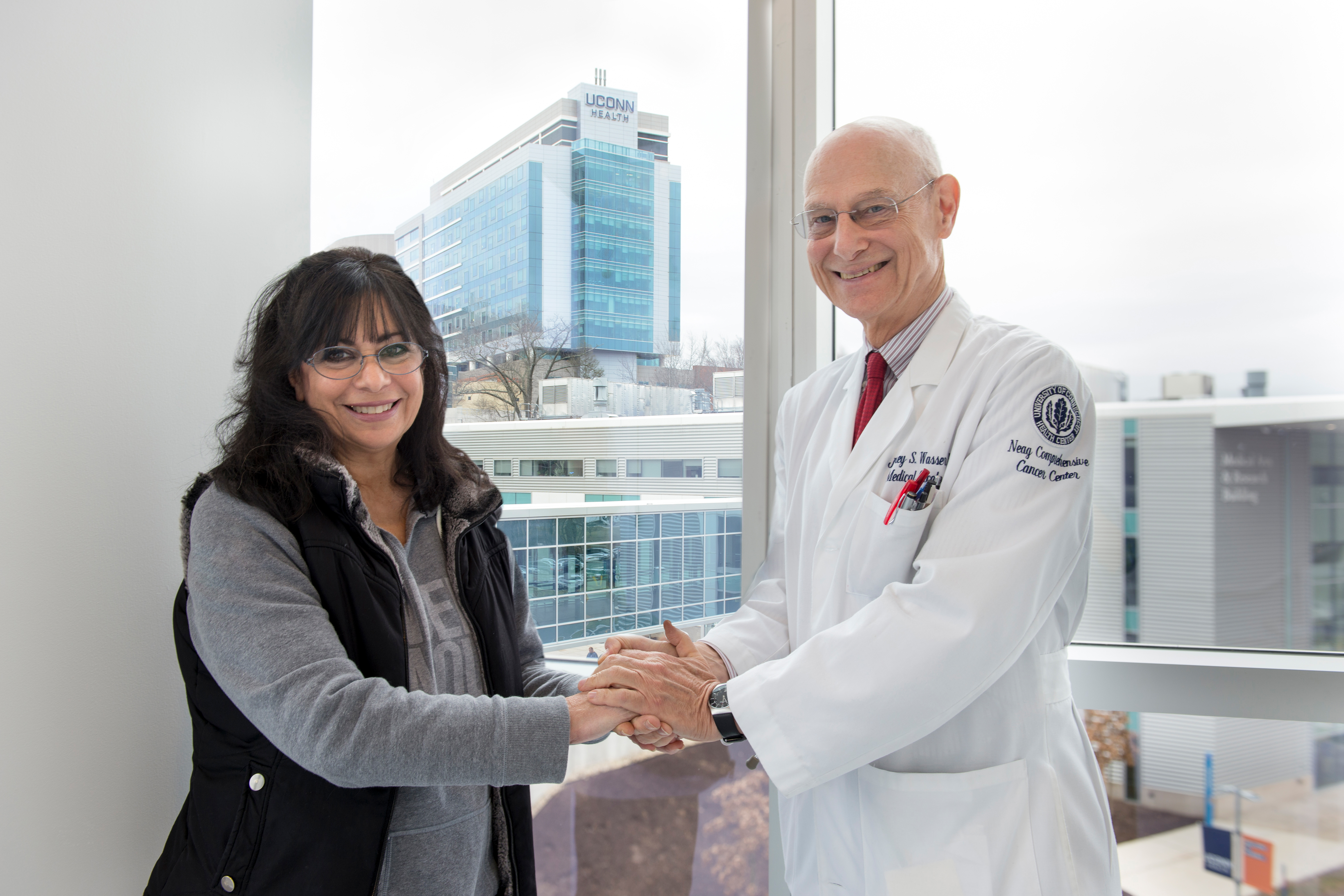Marcia Goglia’s stomach suddenly started bothering her one day in 2014. It was becoming swollen and distended.
A few days after her discomfort began, she began experiencing extreme stomach pain, and had to be rushed to her local emergency room.
“My stomach felt big and hard,” says Goglia, 64, of Middletown.
After examination in the ED, she was sent home with a laxative, as the doctors thought it could just be constipation.
But Goglia knew it was more than just that. “Something was desperately wrong,” she recalls.
Hoping to find relief for her stomach pain and to be sure it was indeed nothing serious, Goglia made an appointment with a gastroenterologist. To her surprise, when the CT scan imaging results came back, she was informed that she needed to see her gynecologist right away.
“You have ovarian cancer,” she was told. In fact, it was an aggressive type of the disease and was already at stage III, meaning that the cancer had begun to spread.
Patients with ovarian cancer usually respond well to surgery and chemotherapy in the short term, but often the disease resurfaces, becoming lethal within a year or two. Sadly, the majority of women die within five years of their diagnosis.
Goglia has no family history of ovarian cancer and no genetic predisposition to the disease. She says it was just “plain old bad luck.”
At UConn Health’s Carole and Ray Neag Comprehensive Cancer Center, Goglia underwent cytoreductive surgery to remove her tumors, and proceeded with chemotherapy. But the chemo soon stopped working. For more than a year, doctors kept trying other chemotherapy combinations unsuccessfully.
That was when her UConn Health gynecology-oncologist at the time, Dr. Angela Kueck, told her about a promising clinical trial at the Neag Cancer Center that was testing the combination of two immunotherapies: Keytruda (pembrolizumab or MK-3475) and Epacadostat (INCB024360), an experimental drug, for a host of advanced cancers, including ovarian cancer.
Just a few months after enrolling in this national clinical trial, known as ECHO-202 and led by Dr. Jeffrey Wasser as principal investigator at the Neag Cancer Center, Goglia got some good news about her cancer.
All of her tumors had shrunk significantly, and even a tumor on her liver was gone. “After seeing my first CT scan results my doctors were amazed and shocked,” she says. Also, her blood tests showed that all her cancer blood markers were extremely low.
“I am so very happy,” says Goglia. “This clinical trial is a miracle for me. I am so grateful to the entire team at UConn Health, Dr. Molly Brewer, Dr. Wasser, and his clinical trial team. If it wasn’t for UConn Health, I might not be here right now.
“I am not out of the woods yet,” she adds, “but thanks to UConn Health there is now a ray of sunshine at the end of the tunnel.”
Wasser notes that it is very courageous for patients like Goglia to volunteer to be in a clinical trial.
“By enrolling in a clinical trial a person may be helping their own health,” he says. “But they are also helping others by contributing to the advancement of potential and promising cures going forward.”
To others living with an advanced cancer diagnosis, Goglia says, “If your traditional cancer treatment isn’t working, don’t be afraid to pursue your clinical trial options.”
Her current gynecology-oncologist, Brewer, who is also chair of the Department of Obstetrics and Gynecology at UConn Health, says, “Marcia’s latest imaging shows her ovarian cancer tumors continuing to shrink, which is great news for her and shows the possible promise of these combination immunotherapies for other women like her with ovarian cancer.”
For more information on clinical trials at the Neag Cancer Center at UConn Health call: 860-692-8455 or visit: health.uconn.edu/cancer.



